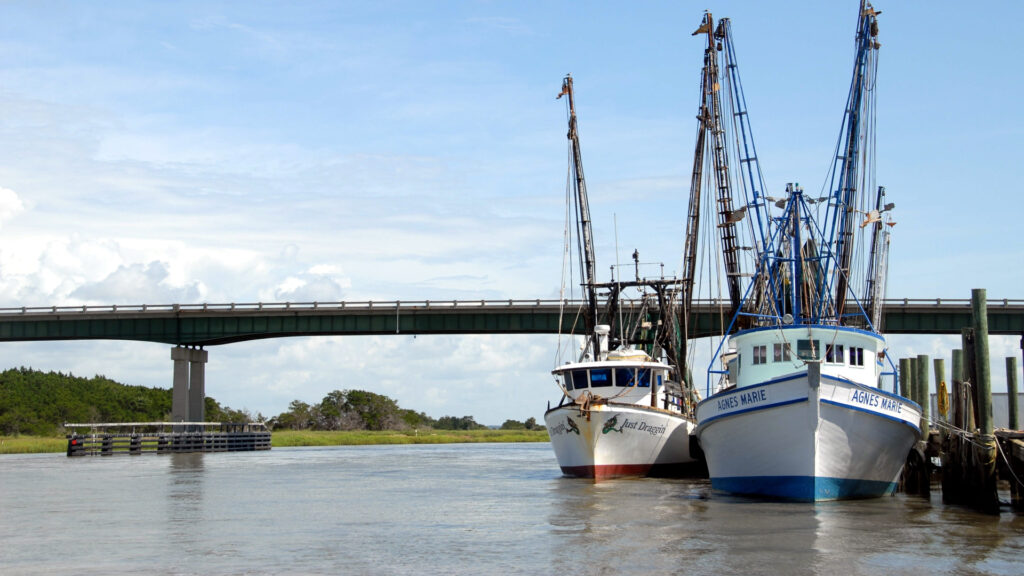LnRiLWJ1dHRvbntjb2xvcjojZjFmMWYxfS50Yi1idXR0b24tLWxlZnR7dGV4dC1hbGlnbjpsZWZ0fS50Yi1idXR0b24tLWNlbnRlcnt0ZXh0LWFsaWduOmNlbnRlcn0udGItYnV0dG9uLS1yaWdodHt0ZXh0LWFsaWduOnJpZ2h0fS50Yi1idXR0b25fX2xpbmt7Y29sb3I6aW5oZXJpdDtjdXJzb3I6cG9pbnRlcjtkaXNwbGF5OmlubGluZS1ibG9jaztsaW5lLWhlaWdodDoxMDAlO3RleHQtZGVjb3JhdGlvbjpub25lICFpbXBvcnRhbnQ7dGV4dC1hbGlnbjpjZW50ZXI7dHJhbnNpdGlvbjphbGwgMC4zcyBlYXNlfS50Yi1idXR0b25fX2xpbms6aG92ZXIsLnRiLWJ1dHRvbl9fbGluazpmb2N1cywudGItYnV0dG9uX19saW5rOnZpc2l0ZWR7Y29sb3I6aW5oZXJpdH0udGItYnV0dG9uX19saW5rOmhvdmVyIC50Yi1idXR0b25fX2NvbnRlbnQsLnRiLWJ1dHRvbl9fbGluazpmb2N1cyAudGItYnV0dG9uX19jb250ZW50LC50Yi1idXR0b25fX2xpbms6dmlzaXRlZCAudGItYnV0dG9uX19jb250ZW50e2ZvbnQtZmFtaWx5OmluaGVyaXQ7Zm9udC1zdHlsZTppbmhlcml0O2ZvbnQtd2VpZ2h0OmluaGVyaXQ7bGV0dGVyLXNwYWNpbmc6aW5oZXJpdDt0ZXh0LWRlY29yYXRpb246aW5oZXJpdDt0ZXh0LXNoYWRvdzppbmhlcml0O3RleHQtdHJhbnNmb3JtOmluaGVyaXR9LnRiLWJ1dHRvbl9fY29udGVudHt2ZXJ0aWNhbC1hbGlnbjptaWRkbGU7dHJhbnNpdGlvbjphbGwgMC4zcyBlYXNlfS50Yi1idXR0b25fX2ljb257dHJhbnNpdGlvbjphbGwgMC4zcyBlYXNlO2Rpc3BsYXk6aW5saW5lLWJsb2NrO3ZlcnRpY2FsLWFsaWduOm1pZGRsZTtmb250LXN0eWxlOm5vcm1hbCAhaW1wb3J0YW50fS50Yi1idXR0b25fX2ljb246OmJlZm9yZXtjb250ZW50OmF0dHIoZGF0YS1mb250LWNvZGUpO2ZvbnQtd2VpZ2h0Om5vcm1hbCAhaW1wb3J0YW50fS50Yi1idXR0b25fX2xpbmt7YmFja2dyb3VuZC1jb2xvcjojNDQ0O2JvcmRlci1yYWRpdXM6MC4zZW07Zm9udC1zaXplOjEuM2VtO21hcmdpbi1ib3R0b206MC43NmVtO3BhZGRpbmc6MC41NWVtIDEuNWVtIDAuNTVlbX0gLnRiLWJ1dHRvbltkYXRhLXRvb2xzZXQtYmxvY2tzLWJ1dHRvbj0iMDdlZWIzNzFiZDdlZGIwMGI2OTEwNTUzZTIzMDlkZjAiXSAudGItYnV0dG9uX19saW5rIHsgYmFja2dyb3VuZC1jb2xvcjogcmdiYSggMjMxLCAyMzYsIDI0MCwgMSApO2JvcmRlci1yYWRpdXM6IDRweDtjb2xvcjogcmdiYSggMCwgMTA5LCAxOTMsIDEgKTtwYWRkaW5nOiAuMjVyZW0gLjVyZW0gLjI1cmVtIC41cmVtO2ZvbnQtc2l6ZTogMTZweDtmb250LXdlaWdodDogYm9sZDtjb2xvcjogcmdiYSggMCwgMTA5LCAxOTMsIDEgKTsgfSAudGItYnV0dG9uW2RhdGEtdG9vbHNldC1ibG9ja3MtYnV0dG9uPSIwN2VlYjM3MWJkN2VkYjAwYjY5MTA1NTNlMjMwOWRmMCJdIC50Yi1idXR0b25fX2xpbms6dmlzaXRlZCB7IGJhY2tncm91bmQtY29sb3I6IHJnYmEoIDIzMSwgMjM2LCAyNDAsIDEgKTtjb2xvcjogcmdiYSggMCwgMTA5LCAxOTMsIDEgKTtjb2xvcjogcmdiYSggMCwgMTA5LCAxOTMsIDEgKTsgfSAudGItYnV0dG9uW2RhdGEtdG9vbHNldC1ibG9ja3MtYnV0dG9uPSIwN2VlYjM3MWJkN2VkYjAwYjY5MTA1NTNlMjMwOWRmMCJdIC50Yi1idXR0b25fX2xpbms6aG92ZXIgeyBiYWNrZ3JvdW5kLWNvbG9yOiByZ2JhKCAyMzEsIDIzNiwgMjQwLCAxICk7Y29sb3I6IHJnYmEoIDAsIDEwOSwgMTkzLCAxICk7Zm9udC13ZWlnaHQ6IGJvbGQ7Y29sb3I6IHJnYmEoIDAsIDEwOSwgMTkzLCAxICk7IH0gLnRiLWJ1dHRvbltkYXRhLXRvb2xzZXQtYmxvY2tzLWJ1dHRvbj0iMDdlZWIzNzFiZDdlZGIwMGI2OTEwNTUzZTIzMDlkZjAiXSAudGItYnV0dG9uX19saW5rOmZvY3VzIHsgYmFja2dyb3VuZC1jb2xvcjogcmdiYSggMjMxLCAyMzYsIDI0MCwgMSApO2NvbG9yOiByZ2JhKCAwLCAxMDksIDE5MywgMSApO2NvbG9yOiByZ2JhKCAwLCAxMDksIDE5MywgMSApOyB9IC50Yi1idXR0b25bZGF0YS10b29sc2V0LWJsb2Nrcy1idXR0b249IjA3ZWViMzcxYmQ3ZWRiMDBiNjkxMDU1M2UyMzA5ZGYwIl0gLnRiLWJ1dHRvbl9fbGluazphY3RpdmUgeyBiYWNrZ3JvdW5kLWNvbG9yOiByZ2JhKCAyMzEsIDIzNiwgMjQwLCAxICk7Y29sb3I6IHJnYmEoIDAsIDEwOSwgMTkzLCAxICk7Y29sb3I6IHJnYmEoIDAsIDEwOSwgMTkzLCAxICk7IH0gLnRiLWJ1dHRvbltkYXRhLXRvb2xzZXQtYmxvY2tzLWJ1dHRvbj0iMDdlZWIzNzFiZDdlZGIwMGI2OTEwNTUzZTIzMDlkZjAiXSAudGItYnV0dG9uX19pY29uIHsgZm9udC1mYW1pbHk6IEZvbnRBd2Vzb21lO21hcmdpbi1yaWdodDogMTJweDsgfSAudGItYnV0dG9uW2RhdGEtdG9vbHNldC1ibG9ja3MtYnV0dG9uPSIwN2VlYjM3MWJkN2VkYjAwYjY5MTA1NTNlMjMwOWRmMCJdIC50Yi1idXR0b25fX2ljb246OmJlZm9yZSB7IGNvbnRlbnQ6ICdcZjBlZCc7IH0gQG1lZGlhIG9ubHkgc2NyZWVuIGFuZCAobWF4LXdpZHRoOiA3ODFweCkgeyAudGItYnV0dG9ue2NvbG9yOiNmMWYxZjF9LnRiLWJ1dHRvbi0tbGVmdHt0ZXh0LWFsaWduOmxlZnR9LnRiLWJ1dHRvbi0tY2VudGVye3RleHQtYWxpZ246Y2VudGVyfS50Yi1idXR0b24tLXJpZ2h0e3RleHQtYWxpZ246cmlnaHR9LnRiLWJ1dHRvbl9fbGlua3tjb2xvcjppbmhlcml0O2N1cnNvcjpwb2ludGVyO2Rpc3BsYXk6aW5saW5lLWJsb2NrO2xpbmUtaGVpZ2h0OjEwMCU7dGV4dC1kZWNvcmF0aW9uOm5vbmUgIWltcG9ydGFudDt0ZXh0LWFsaWduOmNlbnRlcjt0cmFuc2l0aW9uOmFsbCAwLjNzIGVhc2V9LnRiLWJ1dHRvbl9fbGluazpob3ZlciwudGItYnV0dG9uX19saW5rOmZvY3VzLC50Yi1idXR0b25fX2xpbms6dmlzaXRlZHtjb2xvcjppbmhlcml0fS50Yi1idXR0b25fX2xpbms6aG92ZXIgLnRiLWJ1dHRvbl9fY29udGVudCwudGItYnV0dG9uX19saW5rOmZvY3VzIC50Yi1idXR0b25fX2NvbnRlbnQsLnRiLWJ1dHRvbl9fbGluazp2aXNpdGVkIC50Yi1idXR0b25fX2NvbnRlbnR7Zm9udC1mYW1pbHk6aW5oZXJpdDtmb250LXN0eWxlOmluaGVyaXQ7Zm9udC13ZWlnaHQ6aW5oZXJpdDtsZXR0ZXItc3BhY2luZzppbmhlcml0O3RleHQtZGVjb3JhdGlvbjppbmhlcml0O3RleHQtc2hhZG93OmluaGVyaXQ7dGV4dC10cmFuc2Zvcm06aW5oZXJpdH0udGItYnV0dG9uX19jb250ZW50e3ZlcnRpY2FsLWFsaWduOm1pZGRsZTt0cmFuc2l0aW9uOmFsbCAwLjNzIGVhc2V9LnRiLWJ1dHRvbl9faWNvbnt0cmFuc2l0aW9uOmFsbCAwLjNzIGVhc2U7ZGlzcGxheTppbmxpbmUtYmxvY2s7dmVydGljYWwtYWxpZ246bWlkZGxlO2ZvbnQtc3R5bGU6bm9ybWFsICFpbXBvcnRhbnR9LnRiLWJ1dHRvbl9faWNvbjo6YmVmb3Jle2NvbnRlbnQ6YXR0cihkYXRhLWZvbnQtY29kZSk7Zm9udC13ZWlnaHQ6bm9ybWFsICFpbXBvcnRhbnR9LnRiLWJ1dHRvbl9fbGlua3tiYWNrZ3JvdW5kLWNvbG9yOiM0NDQ7Ym9yZGVyLXJhZGl1czowLjNlbTtmb250LXNpemU6MS4zZW07bWFyZ2luLWJvdHRvbTowLjc2ZW07cGFkZGluZzowLjU1ZW0gMS41ZW0gMC41NWVtfSB9IEBtZWRpYSBvbmx5IHNjcmVlbiBhbmQgKG1heC13aWR0aDogNTk5cHgpIHsgLnRiLWJ1dHRvbntjb2xvcjojZjFmMWYxfS50Yi1idXR0b24tLWxlZnR7dGV4dC1hbGlnbjpsZWZ0fS50Yi1idXR0b24tLWNlbnRlcnt0ZXh0LWFsaWduOmNlbnRlcn0udGItYnV0dG9uLS1yaWdodHt0ZXh0LWFsaWduOnJpZ2h0fS50Yi1idXR0b25fX2xpbmt7Y29sb3I6aW5oZXJpdDtjdXJzb3I6cG9pbnRlcjtkaXNwbGF5OmlubGluZS1ibG9jaztsaW5lLWhlaWdodDoxMDAlO3RleHQtZGVjb3JhdGlvbjpub25lICFpbXBvcnRhbnQ7dGV4dC1hbGlnbjpjZW50ZXI7dHJhbnNpdGlvbjphbGwgMC4zcyBlYXNlfS50Yi1idXR0b25fX2xpbms6aG92ZXIsLnRiLWJ1dHRvbl9fbGluazpmb2N1cywudGItYnV0dG9uX19saW5rOnZpc2l0ZWR7Y29sb3I6aW5oZXJpdH0udGItYnV0dG9uX19saW5rOmhvdmVyIC50Yi1idXR0b25fX2NvbnRlbnQsLnRiLWJ1dHRvbl9fbGluazpmb2N1cyAudGItYnV0dG9uX19jb250ZW50LC50Yi1idXR0b25fX2xpbms6dmlzaXRlZCAudGItYnV0dG9uX19jb250ZW50e2ZvbnQtZmFtaWx5OmluaGVyaXQ7Zm9udC1zdHlsZTppbmhlcml0O2ZvbnQtd2VpZ2h0OmluaGVyaXQ7bGV0dGVyLXNwYWNpbmc6aW5oZXJpdDt0ZXh0LWRlY29yYXRpb246aW5oZXJpdDt0ZXh0LXNoYWRvdzppbmhlcml0O3RleHQtdHJhbnNmb3JtOmluaGVyaXR9LnRiLWJ1dHRvbl9fY29udGVudHt2ZXJ0aWNhbC1hbGlnbjptaWRkbGU7dHJhbnNpdGlvbjphbGwgMC4zcyBlYXNlfS50Yi1idXR0b25fX2ljb257dHJhbnNpdGlvbjphbGwgMC4zcyBlYXNlO2Rpc3BsYXk6aW5saW5lLWJsb2NrO3ZlcnRpY2FsLWFsaWduOm1pZGRsZTtmb250LXN0eWxlOm5vcm1hbCAhaW1wb3J0YW50fS50Yi1idXR0b25fX2ljb246OmJlZm9yZXtjb250ZW50OmF0dHIoZGF0YS1mb250LWNvZGUpO2ZvbnQtd2VpZ2h0Om5vcm1hbCAhaW1wb3J0YW50fS50Yi1idXR0b25fX2xpbmt7YmFja2dyb3VuZC1jb2xvcjojNDQ0O2JvcmRlci1yYWRpdXM6MC4zZW07Zm9udC1zaXplOjEuM2VtO21hcmdpbi1ib3R0b206MC43NmVtO3BhZGRpbmc6MC41NWVtIDEuNWVtIDAuNTVlbX0gfSA=
Established in 2016, SIMP was designed to prevent Illegal Unreported and Unregulated (IUU) fish and mislabeled seafood from entering the United States, thereby protecting law-abiding fishers and the seafood industry as well as the health and safety of American consumers. Initially, SIMP was set up as a pilot program that covered 13 seafood species. At the time of establishment, NOAA stated it would update the program and eventually include all seafood species. Today, seven years later, NOAA lacks ambition; the proposed rule only adds a handful of new species to the list to be covered. This keeps the door wide open for illegal seafood to continue to enter the U.S., defrauding consumers and endangering law-abiding businesses. The U.S. imports 85 percent of seafood consumed each year. Much of this seafood is initially harvested in the U.S. and sent overseas to be processed, which makes SIMP NOAA’s primary tool to combat IUU fishing and seafood fraud.
The proposed rule is a disappointment. It does the bare minimum and provides little evidence why certain species were chosen and others ignored. It does not go far enough to address the problems of illegal and fraudulent seafood imports entering the U.S. market or address labor concerns. As drafted, it only proposes to expand SIMP traceability requirements to eight species groups – representing a five to 10 percent increase in the program’s current coverage. This amounts to just over half of all seafood imports covered by SIMP, and therefore the door remains open for billions of dollars of IUU-caught and mislabeled seafood products to flood the U.S. market.
Species known to be IUU-caught, mislabeled, harvested, and processed with forced labor will still enter U.S. commerce, including pollock and blue swimming crab. Russian-caught pollock is co-mingled alongside legally harvested, American-caught pollock in Chinese processing factories. It is then re-exported to the U.S. as fish blocks, fish sticks, and canned products labeled as a product of China. American consumers are unwittingly funding Russia’s war effort in Ukraine because NOAA will not extend SIMP’s traceability requirements to pollock. Indonesian blue swimming crab is known to be mislabeled and sold as Chesapeake Bay Blue Crabs in the U.S., undermining the law-abiding watermen of the Bay and Atlantic coast.
The proposed rule also fails to address forced labor in the seafood supply chain. This contravenes the Biden Administration and NOAA stated priorities and ongoing efforts to include labor in its work to combat IUU fishing. A 2017 ILO report estimated that there are 24.9 million people in forced labor around the world, 12 percent of whom work in the agriculture and fishing sectors. The 2022 List of Goods Produced by Child Labor or Forced Labor included 19 countries where child or forced labor is known to occur in the production of fish and shellfish. Several of the countries included on the list, notably China, Indonesia, and Thailand, are major exporters to the U.S. In December 2022, the Department of the Treasury’s Office of Foreign Asset Controls (OFAC) sanctioned two individuals, Li Zhenyu and Xinrong Zhuo, and their network of assets, including Dalian Ocean Fishing Co., Ltd. and Pingtan Marine Enterprise, Ltd. for serious labor and human rights violations committed onboard company vessels. Other agencies take labor and human rights violations in the seafood sector seriously, and NOAA claims to do the same, yet its failure to include labor in the proposed rule not only undermines their initiatives, but those of other sister agencies as well.
SIMP was first released in 2016, and seven years later NOAA has only made incremental steps to improve the rule and prevent IUU-caught and mislabeled seafood from entering U.S. commerce. At the end of the day, American consumers want to know that their seafood is safe, legal, accurately labeled, and caught and processed without the use of forced labor, yet NOAA repeatedly fails its mandate to ensure this occurs.
The Stimson Center recommends:
- Include additional species considered to be at risk of IUU fishing such as the Blue Swimming Crab, Salmon, and Pollock species in this SIMP rule.
- Begin a transparent public process to evaluate additional at-risk species to help target, identify, evaluate, and prevent IUU-caught fish from entering U.S. markets, including additional at-risk species.
- Add data reporting requirements to address Forced Labor; and
- Commit to risk-based import screening that expands risk beyond species to other IUU fishing-related activities including at risk: landings, transshipment, ports, flag states, vessels, companies/owners, processing activities, labor abuses, aquaculture facilities and farms.
Read the full comments submitted to NOAA.




